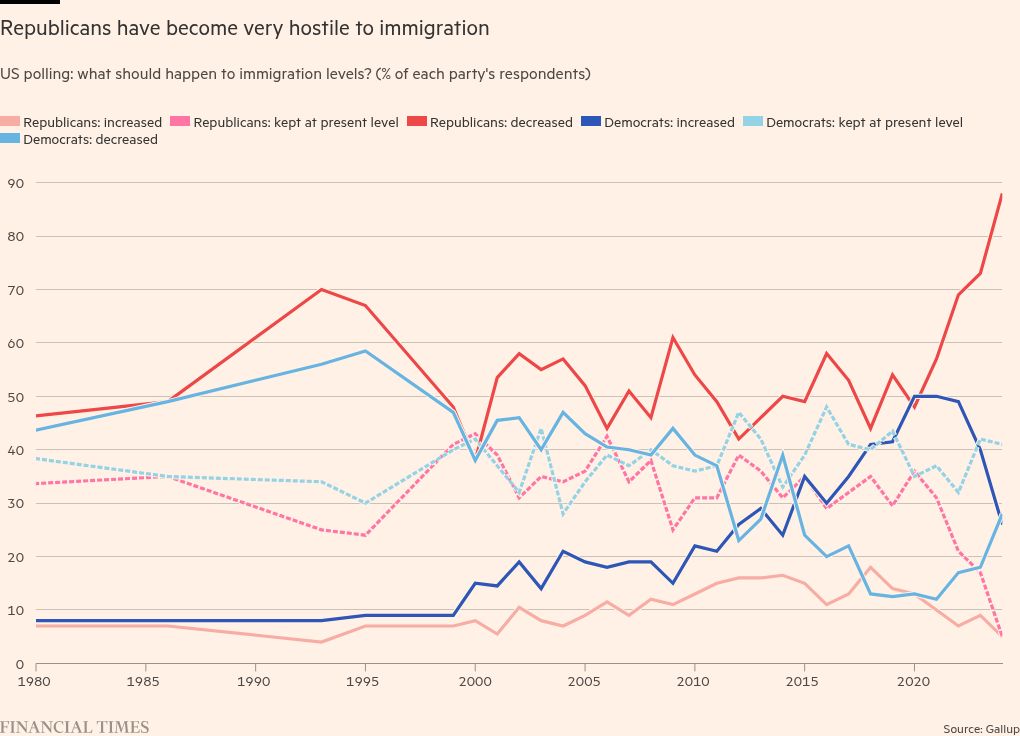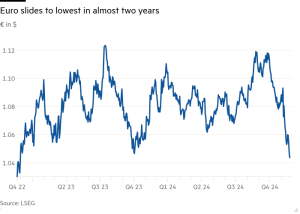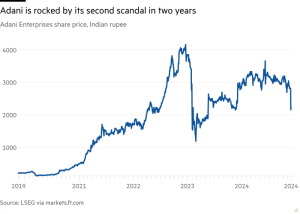Trump is the man who would be king

Unlock the US Election Countdown newsletter for free
The stories that matter on money and politics in the race for the White House
What would a second coming of Donald Trump mean for the US and the world? Optimists can point to what happened last time: his presidency, they might assert, was full of sound and fury. But it signified little. He ruled more conventionally than many feared. Moreover, in the end, he was beaten by Joe Biden and departed. He departed with bad grace, it is true. But what else would one expect? He departed, all the same. Why would it not be similar if he won a second term, as polls suggest is likely?
Trump is an expert in empty promises. In 2016, a centrepiece of his campaign was the “wall” that Mexico would pay for. In the end, there was no wall, let alone any money from Mexico. This time he has promised to round up and deport as many as 11mn undocumented aliens. The operation needed to do this would be immensely costly and controversial. Indeed, how exactly would many millions be deported and to where?
More ridiculous is Trump’s suggestion that by raising tariffs, he could eliminate the income tax. This is utter nonsense. According to a paper by Kimberly Clausing and Maurice Obstfeld, even the revenue-maximising tariff of 50 per cent all round would deliver less than 40 per cent of the revenue from income tax. The net loss of tax revenue would gut the spending on which his relatively elderly voters depend.
Yet a second Trump presidency could still be far worse than the first. In 2016, he was the dog that caught the car. In his ignorance, he ended up hiring people who shared neither his goals nor his interests. Today, the Republican party consists of loyalists who accept that the “great leader” defines truth, as he has done over the results of the 2020 election. The Heritage Foundation’s “2025 Project” has also produced plans to tame the federal government, while the Supreme Court has stated that, in his “official . . . functions”, the president is above the criminal law. He would feel vindicated and be vengeful.

What might this persuade Trump to do? He could increase already huge US fiscal deficits and pressure the Federal Reserve to keep interest rates low. If he succeeded in appointing devoted loyalists to run the justice department, the intelligence agencies and the Internal Revenue Service, he could proceed to prosecute perceived enemies without restraint. He could justify such actions as a quid pro quo for the many justified prosecutions of himself. He would presumably pardon the insurrectionists of January 6 2021, who attempted to prevent the certification of the results of the last election. With control over the armed forces, he might declare martial law freely. More broadly, he could use the apparatus of the US government to exercise control over parts of the country seen as too independent.
Abroad, he could implement his trade war with few restraints, including against Canada and Mexico. As commander-in-chief, he could render Nato commitments meaningless, merely by indicating his disinclination to order troops into battle. He could, once again, pull out of all climate agreements at an even more sensitive moment. He could make it far harder for institutions like the IMF and the World Bank to operate. He could support the hard right throughout Europe. He could (and probably would) abandon Ukraine.
In considering the full implications for the world, one has to distinguish the direct effects of such actions from the indirect ones of his comeback. The latter would, above all, be the encouragement to rightwing populists seeking power, particularly in Europe. With the US, the great bastion of democracy in the 20th century, under authoritarian control, there would be a swing in the global balance against liberal democracy, not just in terms of power, but in terms of ideological credibility. The US has, after all, been the model, however imperfect, to much of the world of a law-governed democratic order. Its choice of Trump for a second time would matter greatly.
Trump is at the very least “fascistic” and can be credibly called a fascist. In interviews with the New York Times, John Kelly, the former US Marines general who was his longest serving chief of staff, is reported as stating that, “in his opinion, Mr Trump met the definition of a fascist, would govern like a dictator if allowed, and had no understanding of the Constitution or the concept of rule of law”. Moreover, Trump “never accepted the fact that he wasn’t the most powerful man in the world — and by power, I mean an ability to do anything he wanted, anytime he wanted”.

For Timothy Snyder, a leading historian of the 1930s and 1940s in Europe, fascism is “a cult of will over reason; it’s life inside a Big Lie; it’s a transformation of politics into a cult of a leader who tells a Big Lie and who is able to establish himself as the person whose will should dominate society”. To this, adds Anne Applebaum, another well-known expert, Trump has described his opponents as “vermin”, again a characteristic of fascist (and Stalinist) rhetoric. The recent “blood libels” about Haitians as consumers of pets fit into fascist denigration of some people as subhuman.
Mistakes made by the Biden administration help explain Trump’s popularity, notably its failure to control immigration. Even so, it is hard to understand the abandonment of core principles of America’s great experiment in republican rule. Much of the success of that experiment is owed to the precedents created by its founder, George Washington. As Tom Nichols notes in The Atlantic, Washington served as president for two terms and then went home. Trump is the anti-Washington. Where Washington was renowned for his probity, Trump is known for the opposite.
This, then, is truly a fateful hour.
Follow Martin Wolf with myFT and on Twitter
#Trump #man #king









